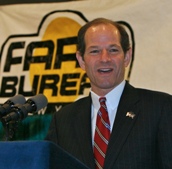 As noted earlier, The Joint Project Agreement (JPA) between the United States government and ICANN will have a mid-term review in March. As part of this review, the US government put out a Notice of Inquiry asking for comments on the continued transition to the private sector.
As noted earlier, The Joint Project Agreement (JPA) between the United States government and ICANN will have a mid-term review in March. As part of this review, the US government put out a Notice of Inquiry asking for comments on the continued transition to the private sector.
ISOC has issued a draft statement that recommends, contrary to ICANN’s desire to complete the process forthwith, that the agreement be allowed to run its full course. Continue reading

 The Internet Corporation for the Assigned Names and Numbers (ICANN) made the plea in a lengthy report sent to the US Department of Commerce.
The Internet Corporation for the Assigned Names and Numbers (ICANN) made the plea in a lengthy report sent to the US Department of Commerce. Tony D’Agata, vice president of federal sales for Sprint told InternetNews.com that Sprint is ramping up some specific IPv6 offerings that are expected to be ready in the second quarter of 2008.
Tony D’Agata, vice president of federal sales for Sprint told InternetNews.com that Sprint is ramping up some specific IPv6 offerings that are expected to be ready in the second quarter of 2008.